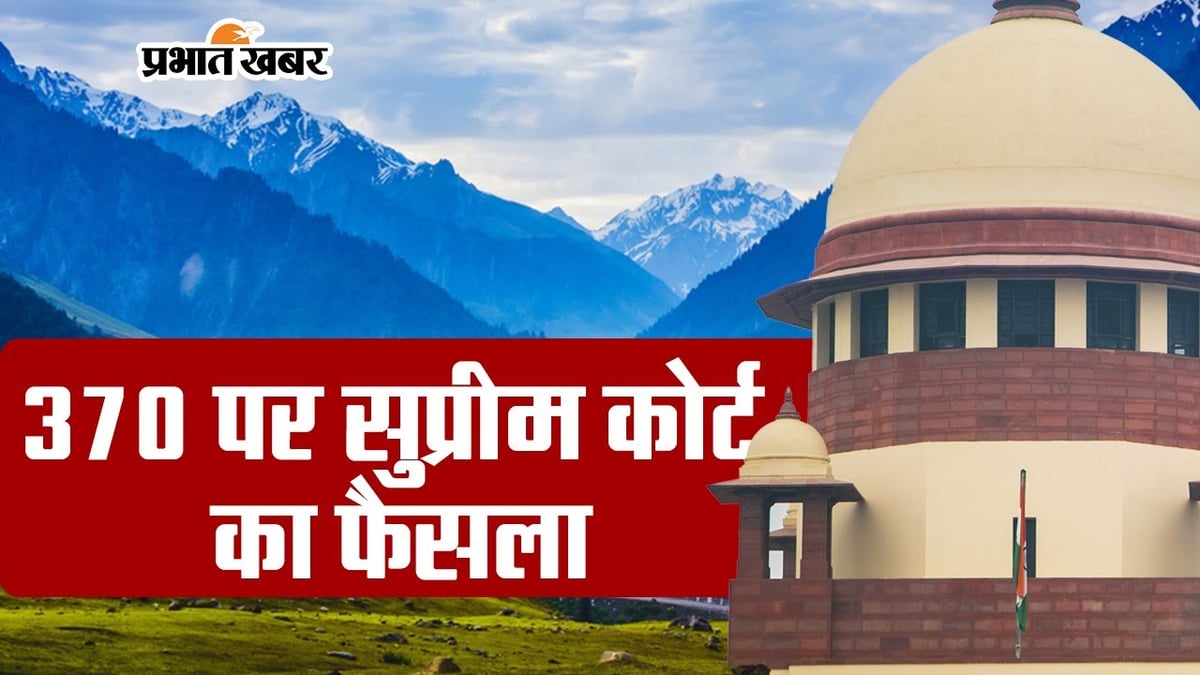The Supreme Court on Monday upheld the government’s decision to abrogate Article 370, which gave special status to the erstwhile state of Jammu and Kashmir, and said that steps should be taken to hold assembly elections by September 30 next year. Chief Justice DY Chandrachud, while delivering the judgment on his own behalf along with Justices BR Gavai and Surya Kant, said that Article 370 of the Constitution was a temporary provision and the President has the power to abrogate it. The top court also upheld the validity of the decision to separate the Union Territory of Ladakh from Jammu and Kashmir in August 2019. Justice Chandrachud said that the erstwhile state of Jammu and Kashmir did not have internal sovereignty unlike other states in the country. He said, “…all the provisions of the Indian Constitution can (also) be applicable to Jammu and Kashmir.” The Chief Justice said, “We urge the President to issue a constitutional order to abrogate Article 370 of the Constitution.” We consider the use of power as legitimate.” While delivering the verdict, he said that Jammu and Kashmir became an integral part of India and this is clear from Articles 1 and 370. He said, “We direct that the statehood of the Union Territory of Jammu and Kashmir be restored as soon as possible.”
The Supreme Court on Monday upheld the government’s decision to abrogate Article 370, which gave special status to the erstwhile state of Jammu and Kashmir, and said that steps should be taken to hold assembly elections by September 30 next year. Chief Justice DY Chandrachud, while delivering the judgment on his own behalf along with Justices BR Gavai and Surya Kant, said that Article 370 of the Constitution was a temporary provision and the President has the power to abrogate it. The top court also upheld the validity of the decision to separate the Union Territory of Ladakh from Jammu and Kashmir in August 2019. Justice Chandrachud said that the erstwhile state of Jammu and Kashmir did not have internal sovereignty unlike other states in the country. He said, “…all the provisions of the Indian Constitution can (also) be applicable to Jammu and Kashmir.” The Chief Justice said, “We urge the President to issue a constitutional order to abrogate Article 370 of the Constitution.” We consider the use of power as legitimate.” While delivering the verdict, he said that Jammu and Kashmir became an integral part of India and this is clear from Articles 1 and 370. He said, “We direct that the statehood of the Union Territory of Jammu and Kashmir be restored as soon as possible.”

